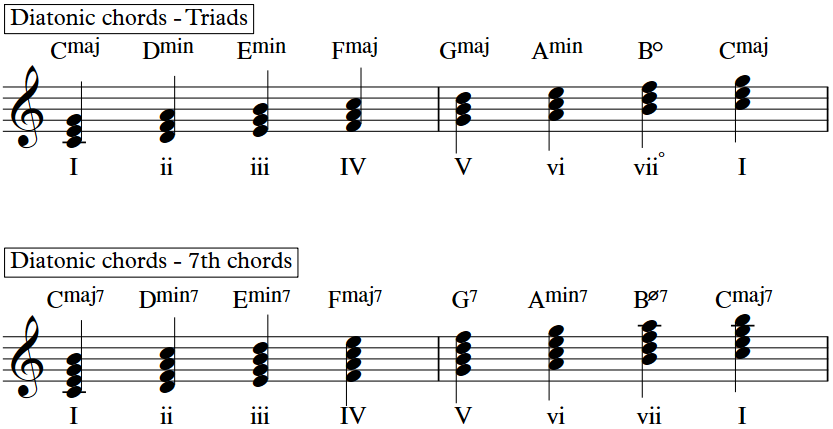Should I Learn Music Theory?
Here we go! Get ready everyone, as a music teacher and professional musician I am very passionate about this subject. Often times new musicians ask me, should I learn music theory? I decided to write this article to convince you why you should.
Yes! You should learn music theory. It is important to understand how music actually works. Knowing music theory will let you understand your favorite songs and influences on a deeper level. It will allow you to learn from your influences.

What is Music Theory?
Music theory is the study of how music works. It encompasses a wide range of topics, from the basics of notation and scales to more advanced concepts like harmony and counterpoint. Understanding music theory can help musicians, composers, and listeners alike to better understand and appreciate the music they hear.
One of the most fundamental aspects of music theory is notation. Notation is the system of symbols used to write down music. The most common notation system is standard Western notation, which uses a five-line staff to indicate pitch and a variety of symbols to indicate rhythm, dynamics, and other elements of music. Notation allows musicians to read and play music written by others, and to write down their own compositions.

Another important aspect of music theory is the study of scales and chords. A scale is a series of pitches arranged in ascending or descending order. There are many different types of scales, including major and minor scales, pentatonic scales, and whole-tone scales. Chords, on the other hand, are groups of pitches played together. There are many different types of chords, including triads and seventh chords, and each type has its own unique sound and feel.
Music theory also includes the study of harmony and counterpoint. Harmony is the way that chords and melodies work together to create a sense of tension and release in music. Counterpoint is the art of combining two or more melodic lines in a way that is pleasing to the ear. Both harmony and counterpoint are important for creating rich, complex music.
In addition to these fundamental concepts, music theory also includes the study of form, rhythm, and timbre. Form refers to the structure of a piece of music, such as whether it is in sonata form or binary form. Rhythm is the way that time is divided up in music, and timbre refers to the unique sound of an instrument or voice.
Music theory can be studied at the school, college and university level, and it can also be studied independently. There are many different approaches to learning music theory, including taking classes, studying books and videos, and working with a private teacher. If you are interested in private music lessons, check out our music lessons in Ann Arbor.
Why Should I Learn Scales?
Learning scales is an essential part of becoming a proficient musician. Scales are a series of pitches arranged in ascending or descending order, and they form the foundation of all music. There are many different types of scales, including major and minor scales, pentatonic scales, and whole-tone scales. Each type of scale has its own unique sound and feel, and learning them can help a musician to better understand and appreciate the music they hear.

One of the main reasons why a musician should learn their scales is that they provide a foundation for understanding chords. Chords are groups of pitches played together, and they are often built on scales. For example, a major scale has a specific pattern of intervals between its notes, and chords can be built by selecting certain notes from that scale. Understanding how chords are built from scales can help a musician to understand how different chords relate to each other and how they can be used to create different harmonic progressions.
Another reason why a musician should learn their scales is that they help to improve technical skill. Playing scales can help to improve finger strength and dexterity, as well as overall technique. Scales can also be used to practice different techniques such as tremolo, arpeggios, and legato. By practicing scales regularly, a musician can improve their overall technique and be better prepared to play more complex pieces of music.
Scales also help a musician to improve their sense of pitch and intonation. When playing scales, it's important to play each note in tune. By regularly practicing scales, a musician can train their ear to recognize when a note is out of tune and make the necessary adjustments. This skill is essential for any musician as it's crucial to have a good sense of pitch and intonation when playing with other musicians.
Learning scales can also help a musician to understand and explore different musical styles. Different cultures and genres have their own unique scales, and by learning them, a musician can gain a deeper understanding of the music they are playing. For example, a musician playing in a rock band may want to learn pentatonic scales to better understand the blues influences in rock music. A jazz musician may want to learn altered scales and modes to better understand the complex harmonic progressions in jazz music.

In addition to all these benefits, learning scales can be a fun and rewarding experience for musicians of all levels. Scales provide a structured way to practice and improve, and by incorporating them into daily practice routine, musicians can make steady progress in their playing.
Well I hope this article convinced you why you need to learn your music theory! I promise, music theory can be fun! You just need to jump in and not get scared when some of the new concepts confuse you. Just remember everyone is confused when they are first learning music theory. Thank you for reading all the way to the end of my article! :)



